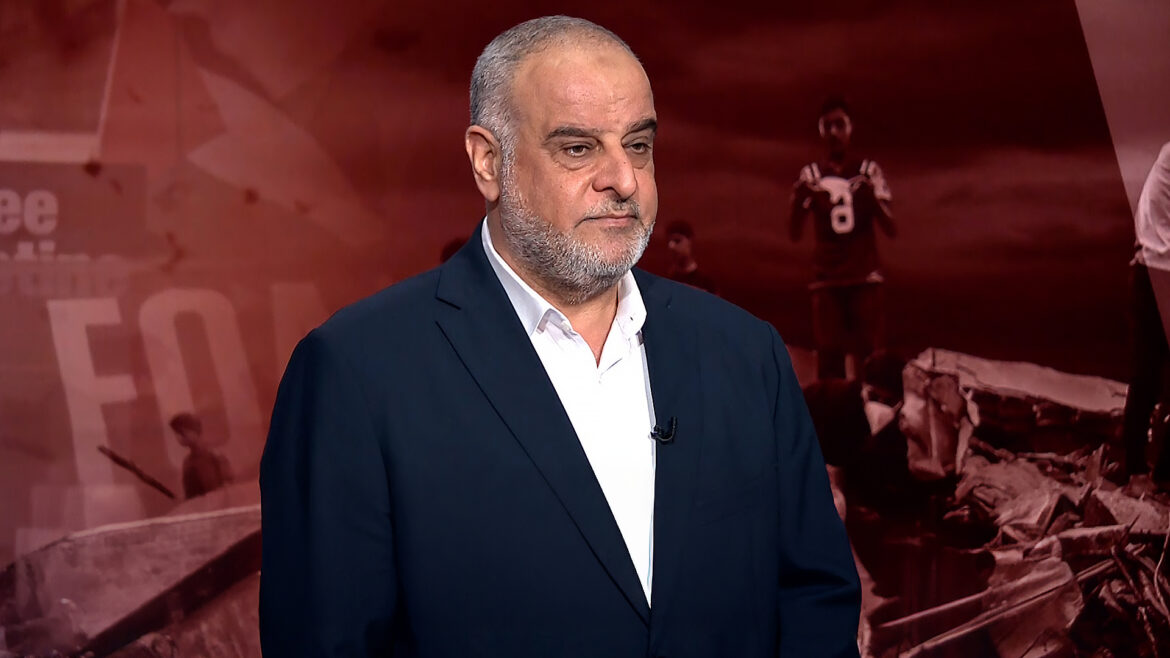The military and strategic expert, Colonel Hatem Karim Al-Falahi, described the operation of fighters from the Al-Qassam Brigades – the military wing of the Islamic Resistance Movement (Hamas) – the separation fence with Israel as bold, well-thought-out, and means a lot to the resistance.
Al-Falahi explained that the resistance strategy is based on confronting the incursion into the Gaza Strip and destroying as many of the invading Israeli forces as possible, stressing that when the Israeli forces’ lines are struck, it causes them a state of confusion and disruption in the confrontation, and causes major problems at the operational level.
He stressed – during his analysis of the military scene in Gaza – that the Qassam operation had a psychological impact on the level of the occupation army, and that the defect that afflicted the Israeli military and intelligence system still existed, adding that this system was unable to correct the mistakes it had fallen into previously.
On the other hand, there is correct operational planning within the resistance strategy, and a command and control system that can manage the defensive battle effectively, such as launching long-range missiles targeting centers of political and economic gravity, or carrying out infiltration operations behind enemy lines, according to Al-Falahi.
He pointed out that the Qassam operation came after 244 days of war, and took place in the same area where the occupation forces were launching a large military operation in Rafah, south of the Gaza Strip, with the participation of a military division and 6 brigades with great intelligence and air capabilities.
“Infiltration behind enemy lines”
Regarding the goals of “infiltration operations from behind enemy lines within the Gaza envelope areas,” Al-Falahi said that they are to strike targets, or collect specific information about specific targets, revealing that infiltration operations are always land, air, or sea.
He added that precise intelligence work, advanced training of fighters, and knowledge of the distribution of enemy sectors are the most important foundations for carrying out such operations. Geography, weather conditions (fog), or tunnels can also be used to carry out such operations by exploiting weak points or loopholes.
He pointed out that this operation cannot be separated from the history of previous infiltration operations that occurred on October 7, or that followed it, such as reaching the Erez crossing or Zikim Beach, stressing that it comes within an integrated context of previous operations to reach behind enemy lines.
Earlier today, the Al-Qassam Brigades announced, in a brief statement, “In a landing operation behind the lines, the Al-Qassam Mujahideen were able to penetrate the fleeting fence and attack the headquarters of the enemy division operating in the city of Rafah, south of the Gaza Strip,” and that was shortly after the occupation forces admitted the killing. A soldier, and a number of soldiers were injured in Palestinian resistance operations in Rafah.
On October 7, 2023, Al-Qassam carried out a major attack on bases, barracks, and settlements around the Gaza Strip, in response to the occupation’s violations of Al-Aqsa and holy sites. Al-Qassam killed hundreds of Israeli soldiers and officers, and captured at least 240 Israelis, and more than 100 of them were released during A temporary humanitarian truce last November.



